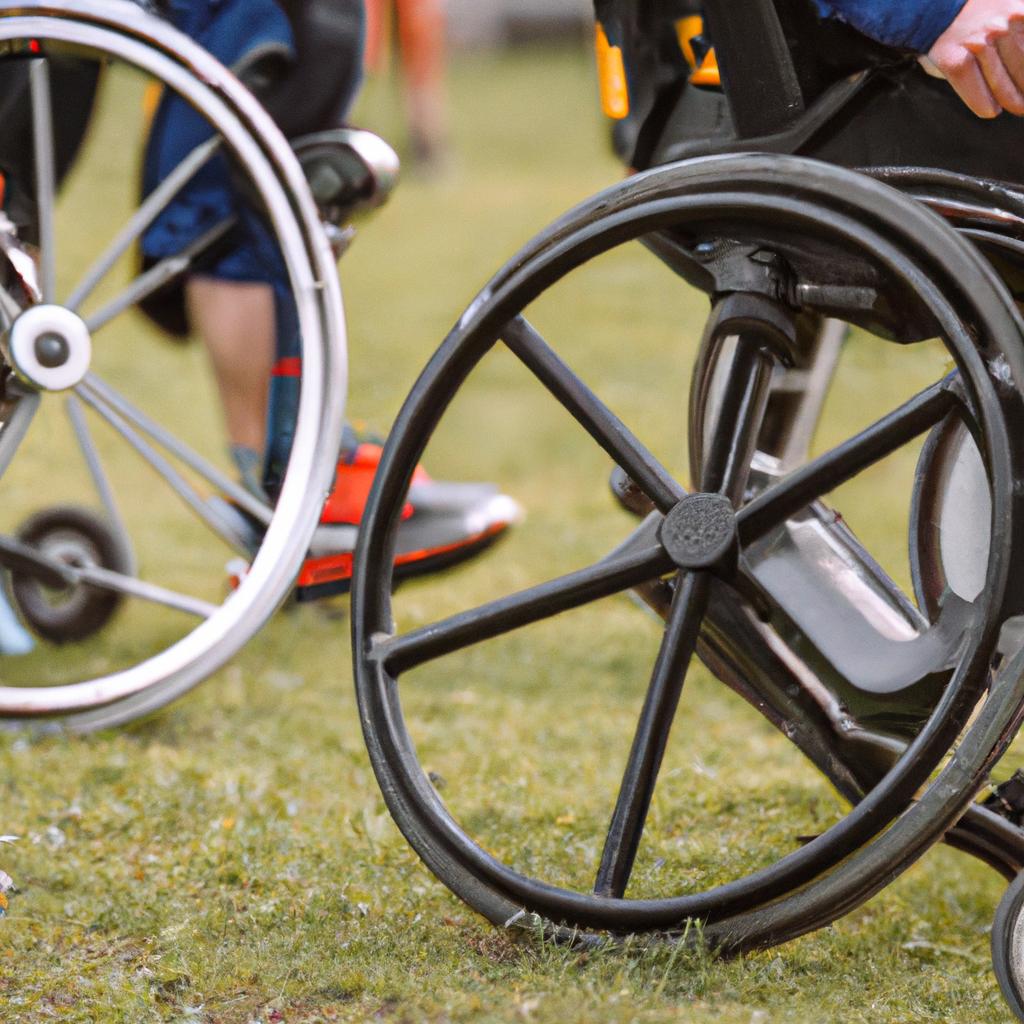The Role of Adaptive Sports in Fostering Independence and Confidence in Individuals with Disabilities
# The Role of Adaptive Sports in Fostering Independence and Confidence in Individuals with Disabilities
In recent years, adaptive sports have gained tremendous momentum as a powerful means of promoting independence and confidence among individuals with disabilities. These specialized sports accommodate various physical limitations, allowing individuals to engage in athletic activities tailored to their needs. This not only enhances their physical health but also bolsters their self-esteem and social connections. In this blog post, we will explore the benefits of adaptive sports, offer nutrition tips and exercise advice, and delve into the overall health benefits that these activities provide.
## The Importance of Adaptive Sports
### Fostering Independence
Adaptive sports create an environment where individuals with disabilities can engage in physical activities on their own terms. This autonomy is crucial in fostering independence. By participating in these sports, athletes learn to navigate challenges, make decisions, and achieve personal goals. The experience of mastering a new skill, whether it’s rolling a wheelchair basketball or swimming with adaptive aids, cultivates a sense of self-reliance.
### Building Confidence
Confidence often stems from accomplishment, and adaptive sports provide numerous opportunities for individuals to feel successful. When athletes overcome obstacles, whether those are physical, mental, or social, they experience a significant boost in self-assurance. As they progress in their abilities, the sense of achievement translates into other areas of their lives, enhancing their overall quality of life.
## Nutrition Tips for Adaptive Athletes
Proper nutrition is vital for anyone engaged in physical activity, but it holds even more significance for adaptive athletes. Here are some essential tips:
### Focus on Balanced Meals
A balanced diet rich in whole foods, including lean proteins, whole grains, fruits, and vegetables, is crucial. This nourishment fuels the body, providing the energy needed for rigorous training and competition.
### Stay Hydrated
Hydration is key. Athletes should drink plenty of water before, during, and after physical activities. This is particularly important for adaptive athletes, as dehydration can affect performance and recovery.
### Consider Nutritional Supplements
Some adaptive athletes may benefit from nutritional supplements, especially if facing challenges in meeting dietary needs. Consult a healthcare professional to determine if supplements like protein powders or vitamins are appropriate.
## Exercise Advice for Adaptive Sports
Engaging in adaptive sports requires specific training and preparation. Here are some exercise tips to enhance performance:
### Start Slow and Progress Gradually
For individuals new to adaptive sports, it’s essential to start slowly and gradually increase the intensity and duration of workouts. This approach minimizes the risk of injury and allows the body to adapt effectively.
### Incorporate Strength Training
Strength training is beneficial for all athletes, including those with disabilities. It helps build muscle, improve endurance, and enhance overall athletic performance. Focus on exercises that target major muscle groups, using resistance bands or weights as appropriate.
### Include Flexibility and Mobility Work
Incorporating flexibility and mobility exercises into the routine can prevent injuries and improve performance. Stretching, yoga, or guided mobility workouts can enhance range of motion and help athletes feel more comfortable in their bodies.
## Health Benefits of Adaptive Sports
The advantages of participating in adaptive sports extend well beyond physical fitness. Here are some key health benefits:
### Physical Health Improvements
Engaging in regular adaptive sports can lead to significant improvements in cardiovascular health, muscle strength, and overall physical fitness. Many athletes report enhanced endurance, increased energy levels, and improved coordination as a result of consistent participation.
### Mental Health Enhancements
Beyond physical benefits, adaptive sports play a crucial role in fostering mental well-being. The endorphins released during physical activity can alleviate symptoms of anxiety and depression. Additionally, the camaraderie developed within teams or groups can combat feelings of isolation, leading to a more positive outlook on life.
### Social Connections
Adaptive sports provide a unique platform for individuals with disabilities to connect with others who share similar experiences and interests. This sense of community can lead to lasting friendships and a support system that encourages personal growth and development.
## Conclusion
In summary, adaptive sports are instrumental in fostering independence and confidence among individuals with disabilities by promoting physical health, mental well-being, and social connections. Through balanced nutrition, tailored exercise regimens, and the myriad of health benefits offered, adaptive sports empower individuals to lead fulfilling lives while embracing their unique challenges and triumphs. Encouraging participation in adaptive sports can ultimately create a more inclusive and supportive environment for everyone.















Post Comment